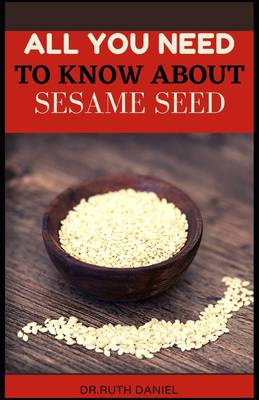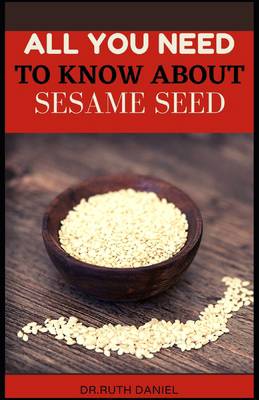
- Retrait gratuit dans votre magasin Club
- 7.000.000 titres dans notre catalogue
- Payer en toute sécurité
- Toujours un magasin près de chez vous
- Retrait gratuit dans votre magasin Club
- 7.000.0000 titres dans notre catalogue
- Payer en toute sécurité
- Toujours un magasin près de chez vous
All You Need to Know About Sesame Seed
Health and Nutrition Benefits of Sesame Seeds
Ruth DanielDescription
Sesame seeds are tiny, oil-rich seeds that grow in pods on the Sesamum indicum plant.
Unhulled seeds have the outer, edible husk intact, while hulled seeds come without the husk.
The hull gives the seeds a golden-brown hue. Hulled seeds have an off-white color but turn brown when roasted.
Sesame seeds have many potential health benefits and have been used in folk medicine for thousands of years. They may protect against heart disease, diabetes, and arthritis .
However, you may need to eat significant amounts - a small handful per day - to gain health benefits.
Three tablespoons (30 grams) of unhulled sesame seeds provide 3.5 grams of fiber, which is 12% of the Reference Daily Intake (RDI).
Since the average fiber intake in the United States is only half of the RDI, eating sesame seeds regularly could help increase your fiber intake .
Sesame seeds contain a variety of healthy nutrients. As a rich source of protein, they are a great addition to vegetarian and vegan diets.
They're also packed with copper, which helps make and red blood cells and also supports your immune system function. In fact, just one cup of dried sesame seeds gives you 163% of your daily value of copper.
Sesame seeds are an excellent source of manganese and calcium, both of which help your bones grow healthy and strong. Calcium also plays a role in nerve signal transmission, muscle movement, blood vessel function, and hormone release.
Other vitamins and minerals found in sesame seeds include:
- Phosphorous
- Magnesium
- Iron
- Zinc
- Molybdenum
Spécifications
Parties prenantes
- Auteur(s) :
- Editeur:
Contenu
- Nombre de pages :
- 94
- Langue:
- Anglais
Caractéristiques
- EAN:
- 9798846443785
- Date de parution :
- 14-08-22
- Format:
- Livre broché
- Format numérique:
- Trade paperback (VS)
- Dimensions :
- 140 mm x 216 mm
- Poids :
- 117 g

Les avis
Nous publions uniquement les avis qui respectent les conditions requises. Consultez nos conditions pour les avis.






